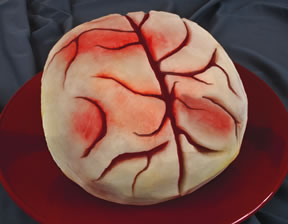Molecular engineering or Molecular manufacturing are processes that are often advocated as a way to combat hunger in various parts of the world where food is scarce. The procedures promoted may involve bio-engineering processes to achieve higher crop yields or methods to alter the growth of foods to add more nutrients. Discovering additives that may combat bacteria or creating ways to keep foods from spoiling are all endeavors considered as initiatives of Molecular Food production. Food research that explores the identification, detection and use of micro-organisms in order to apply standards to the modification of foods has become an important area of study for many educational facilities. It is the intent of these institutions to explore, teach and train individuals in the years ahead so they can provide guidance for procedures that may develop beneficial Molecular Food processes. Another version of Molecular Food involves the preparation methods that individuals may use to create a food dish or recipe. Non-traditional ingredients or cooking methods may be employed to create a technologically achieved or engineered result. Altering a flavor or a texture may occur with the use of Molecular procedures. At times, Molecular Foods may be considered to be a form of fusion cooking as ingredients or procedures are fused into an enjoyable result. However, Molecular Food will typically involve technology in some form to provide the food be labled as Molecular.
Loading
Molecular Food


Provided By
RecipeTips
RecipeTips
Reviewed By molecular gastronomy
"I agree with you that they are changing things from a molecular level, but for ... read full review"
"I agree with you that they are changing things from a molecular level, but for ... read full review"

Any of a wide variety of foods that are produced by altering or engineering various procedures to achieve desired results. Foods that are grown from seeds altered to resist damage from drought, insect infestation, or harmful plant diseases may be considered as Molecular Foods. Reconstructing foods from chemicals such as carbon, hydrogen and oxygen may be considered as a way to provide flavors and nutrients found in other foods that are more difficult to raise, grow or develop and therefore are produced as a Molecular Food alternative. From the ability to decrease costs of crop production to the creation of better packaging, Molecular Food engineering involves many different aspects of food creation, development and production.
There currently aren't any reviews or comments for this term. Be the first!
Advertisement
Advertisement
















